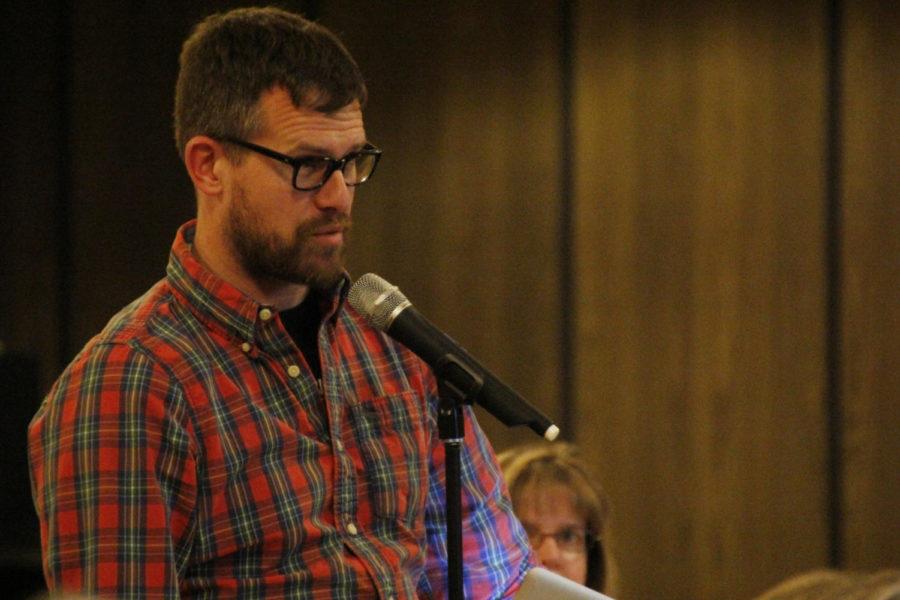Faculty Senate talks of tenure and renaming of academic units
March 12, 2013
Enrollment increases, process of promotion in faculty tenure, new academic programs and renaming academic units are issues to be tackled by the Faculty Senate.
Provost Jonathan Wickert delivered his report at the March 12, 2013 meeting and brought up the topic of enrollment, saying that “projections are very strong.”
The projected increase for fall 2013 has jumped from the last prediction made in February, so much so that no estimated number could be given.
Course availability and distribution of faculty are concerns being considered. The question of quality versus quantity was also raised, meaning: Will there be a point where Iowa State will have to turn students away because they don’t meet ISU standards?
Wickert said that no conversations on a cap are being discussed.
Unfinished business matters followed the Provost’s report. The master’s degree in finance program, public relations major, and landscape management minor were all unanimously voted to be approved. These programs can be expected to be seen on university catalog by the next academic year, depending on funding.
The topic of tenure causes tension among faculty members. Because tenure is a large part of an individual’s career goal and the university’s standards, voting procedures for promotion in tenure are taken very seriously.
Brought up in the October Faculty Senate meeting, voting for tenure has received so much input and revisions that a decision still has yet to be made. The topic has been brought up in nearly every meeting since then. The Faculty Senate hopes to come to a decision on the voting procedure at the April 2 meeting.
“This portion of policy changes [is] related to the one-person, one-vote concept that we have all leaned on for several years and then at the same time addressing some clarification issues: There were several ways some language in the handbook can be interpreted,” said Steve Freeman, former president of the Faculty Senate, who presented the handbook revisions.
If a faculty member votes on a tenure promotion as a part of departmental and tenure promotion committee, that same person cannot vote again on a different level such as the college or any other level of review.
After 15 minutes of active discussion and encouragement to bring the revisions to their departments, a motion was made for the Faculty Senate to move onto the next object of new business: renaming academic units based off of philanthropic gifts.
The proposed change in the faculty handbook was discussed for approximately 30 minutes. The policy of renaming an academic unit is under the authority of the president of the university. Faculty advice, but not consent, was welcomed. Some Senate members’ biggest concern was the faculty’s ability to provide input on the name change.
One Senate member offered the suggestion of giving faculty the right to vote on the name change rather than just advice prior to the actual decision. This was rejected by the Senate Executive Board.
Reasons for faculty uneasiness went with the issue of corporations and confidentiality. If a big-name corporation was to title an academic unit, that would cut off donations from competition. Openly supporting a single donor may skew the direction of the unit, said Kevin Amidon, associate professor of world languages and cultures.
“The department is the tenure home of the faculty within which faculty members judge each other’s work for promotion for tenure,” Amidon said. “Any name to a department indicates that that name is authorizing the work of the department. I think, consciously or unconsciously, this can skew the nature of what the department perceives itself to be doing.”
Amidon brought up the issue of the donor wanting confidentiality. If donors wished for their donation to be confidential, it could not be brought up in a faculty meeting because the information would be available in public records.
The Faculty Senate made it clear that the university does not wish to name departments after corporations.
Provost Wickert stated that President Leath is very active in raising individual philanthropy and mentioned that the university is well above their goal in fundraising. The meeting concluded without a decision on the renaming policy, with hopes to reach a decision at the April 2 meeting.







